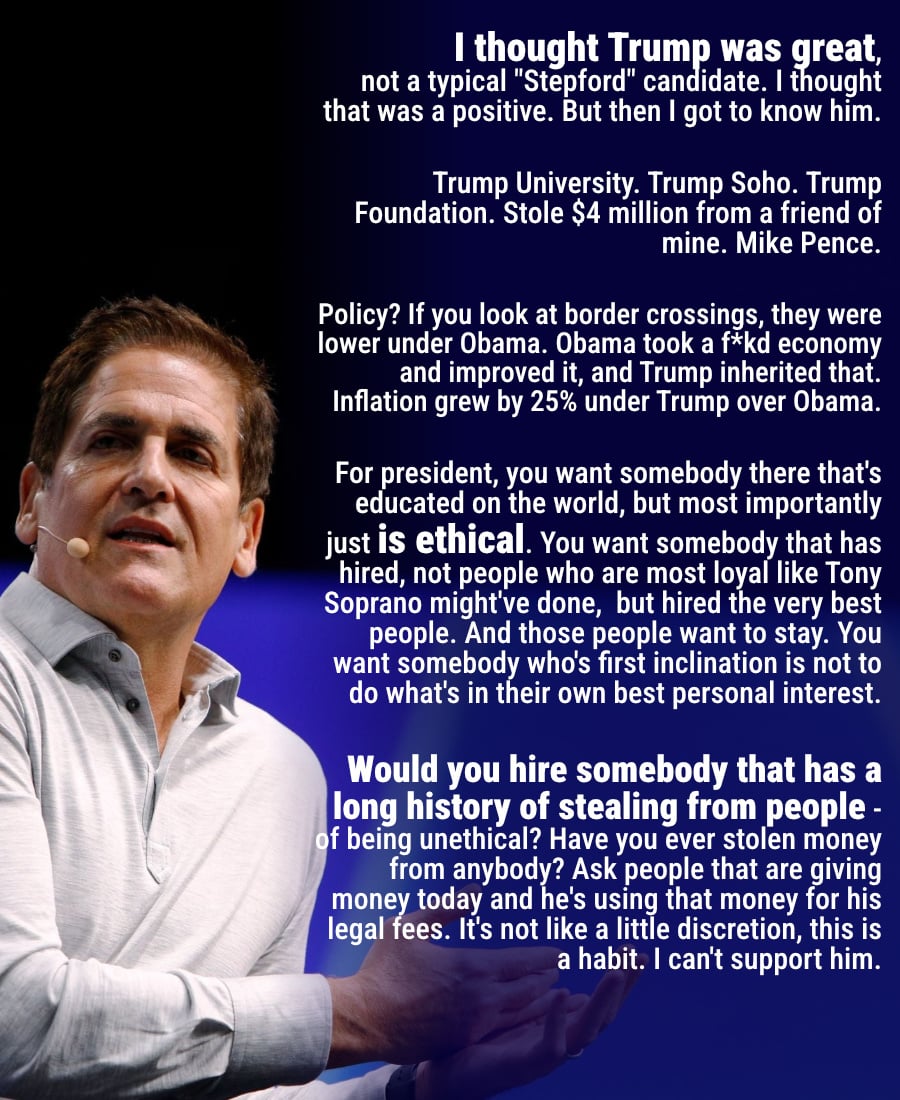this post was submitted on 22 Aug 2024
830 points (95.9% liked)
Political Memes
5489 readers
2957 users here now
Welcome to politcal memes!
These are our rules:
Be civil
Jokes are okay, but don’t intentionally harass or disturb any member of our community. Sexism, racism and bigotry are not allowed. Good faith argumentation only. No posts discouraging people to vote or shaming people for voting.
No misinformation
Don’t post any intentional misinformation. When asked by mods, provide sources for any claims you make.
Posts should be memes
Random pictures do not qualify as memes. Relevance to politics is required.
No bots, spam or self-promotion
Follow instance rules, ask for your bot to be allowed on this community.
founded 1 year ago
MODERATORS
you are viewing a single comment's thread
view the rest of the comments
view the rest of the comments

If you hire a plumber, you do it as a customer and not an employer. Quite a difference!
A customer pays the full value of the purchase, the plumber is the one in charge and charges as much as possible. That's how they make profit. That's why you still own your toilet, the plumber already got the full value they were owed.
An employer never pays the full value, though! The employer, as the one in charge, pays as little as possible. They pockst the difference as profit. That means the employees are always cheated out of the full value of their labor, they are never paid what they are actually worth.
Except here we're talking about ownership/shares, not payment for labour. Many in this thread are outraged that not every employee of Broadcast owned shares, and the implication is that as soon as you work for someone, you should receive a share. My plumber example still stands. Should he get a "share" of my house, even though I already paid him for his labour, as Cuban paid his employees?
Again,we're talking about shares, not labour. For all you know Cuban was drawing zero salary from the company. The two are completely different. You're all so doctrinaire that you can't mentally distinguish labour versus ownership of a thing.
Your plumber doesn't own a share of your toilet because you actually paid them what they are worth, because they can demand it from you. They have all the power in that relationship.
No employee is ever paid what they are worth. They can't be, if they were then the company could never make a profit. That's literally where profit comes from - it's all surplus value created by the workers. Hence, they should get a share of the company.
Funny you mention that! Broadcast.com was in fact not profitable. It lost millions the year it was sold to Yahoo.
And who got the profit from that sale?
So the company never operated at a profit - it was profitable in the end, was it not? And who created all of that profit? Who sacrificed for the company and were never paid what they were worth to make it good enough to sell in the first place?
So if I sell my house at a loss because I'm inept, the plumber should get an even bigger share of the sale money?
The plumber was already paid the full value he was worth because the power dynamics are entirely different.
A company that can't turn a profit isn't doing so because it's paying the workers the full value of their labor. That's absurd. Is that what you think happened? Do you think the workers were being paid such extravagant wages that the company couldn't profit?
Obviously not. Why do you think the company became valueable enough to buy in the first place? It took the stolen surplus value created by the workers and reinvested into itself over-and-over, becoming a valuable company even if it couldn't turn a profit. No one would buy a company because it's worthless. They do it because it's valuable, and all the value comes from the workers.
You should familiarise yourself with the details of this particular transaction, because your idealised description bears very little resemblance to what actually happened. There's a reason this is known as one of the worst business deals of all time.
Okay, so he was an inept dipshit?
Sounds like he didn't deserve any of the money, actually.
In fact, the company clearly would have been better off if he wasn't involved at all and it was a worker co-op instead.
lol alright I'm done, you're clearly too busy fighting strawmen because your arguments don't make any sense regarding the topic at hand.